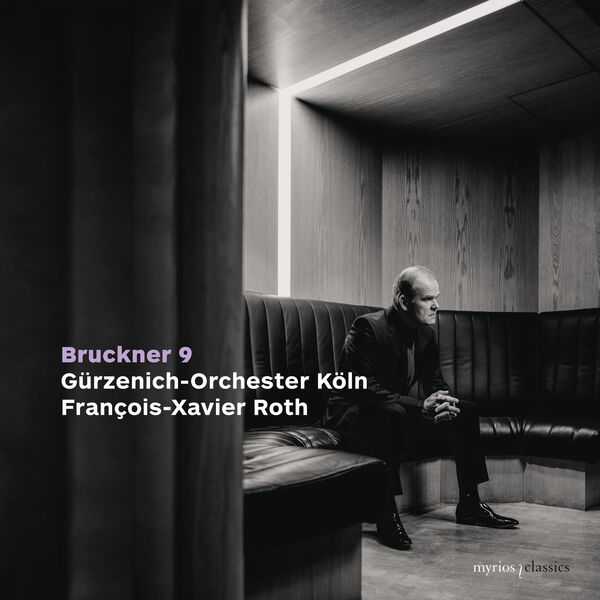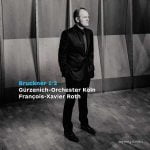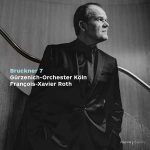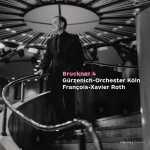

Composer: Anton Bruckner
Orchestra: Gürzenich-Orchester Köln
Conductor: François-Xavier Roth
Format: FLAC (tracks)
Label: Myrios
Catalogue: MYR034
Release: 2024
Size: 0.98 GB
Recovery: +3%
Scan: yes
Symphony No. 9 in D Minor, WAB 109 (Original Version)
01. I. Feierlich. Misterioso
02. II. Scherzo. Bewegt, lebhaft
03. III. Adagio. Langsam, feierlich
Anton Bruckner dedicates his 9th Symphony to “Dear God”, knowing full well that his heart disease will kill him. When he died in October 1896, the news of his death was merely a marginal note in the Viennese newspaper Neue Freie Presse. However, everyone can see from it that his estate contains “sketches for the fourth movement of his ninth symphony”, of which only three movements had been completed. The next day, with the room still unsealed, the souvenir hunters arrive. “Authorised and unauthorised persons “descend on the papers “like vultures”, according to Bruckner’s horrified doctor. Numerous manuscripts are stolen. When the rest is sifted through six days later, there are still 75 score sheets of the Finale of the 9th Symphony-and even these do not remain together. And so, at the time of Anton Bruckner’s death, only three complete movement remained, a triad with an unfathomable perfection inherent in the work. The symphonist Bruckner’s “last word “is therefore not an impetuous Allegro, but an Adagio lasting over 20 minutes, unprecedented in its depth and harmony. In it, Anton Bruckner casts a shadow back to Richard Wagner, whom he so admired-and head to Arnold Schoenberg. And like Gustav Mahler, who also ended his “Ninth” years later with an overpowering adagio, Anton Bruckner did not live to see the premiere of his last symphony and its aftermath. To date, countless composers and Bruckner scholars have attempted to undo the body-snatching and reconstruct the manuscripts of the fourth movement into a whole “in the spirit of the composer”. Francois-Xavier Roth and the Greenwich Orchestra Cologne remain true to the original three-movement version in their highly acclaimed Bruckner cycle, and this album marks an important milestone in the works discography.
Conductor François-Xavier Roth emerged from the historical performance movement (and is still active there), making recordings of late Romantic music, especially French. In his Bruckner Symphony No. 9 in D minor, WAB 109, there are no historical instruments in the Gürzenich-Orchester Köln, but Roth’s work still shows the impact of the historical performance movement in the sharp definition he brings to contrapuntal lines and above all in the speed of the performance. He performs only the first three movements of the symphony, not the unfinished fourth in one of its various completions, and his middle Scherzo is comparable in length to many others. This leaves the two outer movements, which may fairly be called lickety-split. Roth’s performance comes in at about 53 minutes total versus an average of more than an hour. One is in quite a different realm here from monumental central European performances, and those new to the work should be aware that the performance is atypical. It is not, however, beyond the pale. Sample around in Roth’s first movement, where the high speeds throw the focus more than usual onto the harmonic structure. The harmonic world shows that the composer was aware of the rapid expansion of the chromatic universe that was happening around him. The first movement, especially, is full of harmonic contrasts that remain unresolved or go a very long time before being resolved, and in Roth’s performance, these come into sharp relief. The work seems more dissonant than usual, even though it really is not. The Gürzenich-Orchester Köln keeps up with Roth’s demands, and the sound from the Philharmonie in Cologne, in the hands of Myrios Classics engineers working under producer Marco Borggreve, has impressive transparency that brings out Roth’s best. Bruckner enthusiasts will find this an intriguing reading of the mighty torso of the Ninth. It made classical best-seller lists in the spring of 2024.



